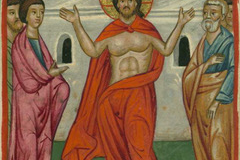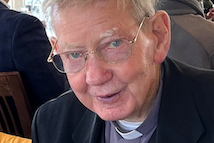China: thousands brave snow, government ban to attend bishop's funeral
Around 2,500 Catholics braved freezing conditions today, to pay their last respects to 'underground' Bishop Leo Yao Liang of Xiwanzi, who had spent almost 30 years of his life behind bars.
The Vatican-approved Coadjutor Bishop Yao, who the government recognized only as a priest, died on 30 December at the age of 86.
He had been sentenced to life imprisonment in 1958 as he refused to join the independent Church movement, and released only in 1984. In 2002, he was clandestinely ordained as a bishop and had been detained several times since then.
The funeral service was held in Xiwanzi town, Chongli county, in Hebei province. Bishop Yao was referred to as 'shepherd' during the service, after authorities forbade the use of the word 'bishop.'
The government also banned Catholics from other parts of China from attending the funeral. The snow-covered roads prevented others from coming, according to sources.
Of the 15 diocesan priests, only three who have registered with the government were allowed to conduct the funeral Mass and the burial liturgy.
Bishop Yao's death leaves the local Church in a dilemma.
Bishop Andrew Hao Jinli of Xiwanzi, 93, is suffering from Alzheimer's disease, diabetes and other illnesses, and is confined to a wheelchair.
Sources say that due to the difficult relations between the underground and government-approved Church communities, the Holy See is unlikely to appoint a younger coadjutor bishop to succeed Bishop Hao.
The issue of bishop succession had worried Bishop Yao before his death, sources say. The prelate fell seriously ill in mid-December and died of multiple organ failure two weeks later. Authorities had prohibited him from leaving Xiwanzi parish after he was released from a 30-month detention in February 2008.
Bishop Yao was born in 1923 and ordained a priest in 1948. Three years later, under the Communist regime, he was banned from doing pastoral work and forced to grow vegetables and cut firewood for a living.
The late bishop is remembered for laying the foundation stone of a new Gothic church building in Xiwanzi town after the older building was demolished. The new building is still being constructed.
Catholicism was introduced to Xiwanzi more than 300 years ago. In the 19th century, the village became the headquarters of the Mongolia apostolic vicariate and the base of the Immaculate Heart of Mary congregation's missionary work in the extensive region beyond the Great Wall.
The government-approved Church had merged Xiwanzi diocese and neighboring Xuanhua diocese to form Zhangjiakou diocese in 1980. However, the two underground Church communities continue to operate despite government pressure and surveillance.
Source: UCAN


















